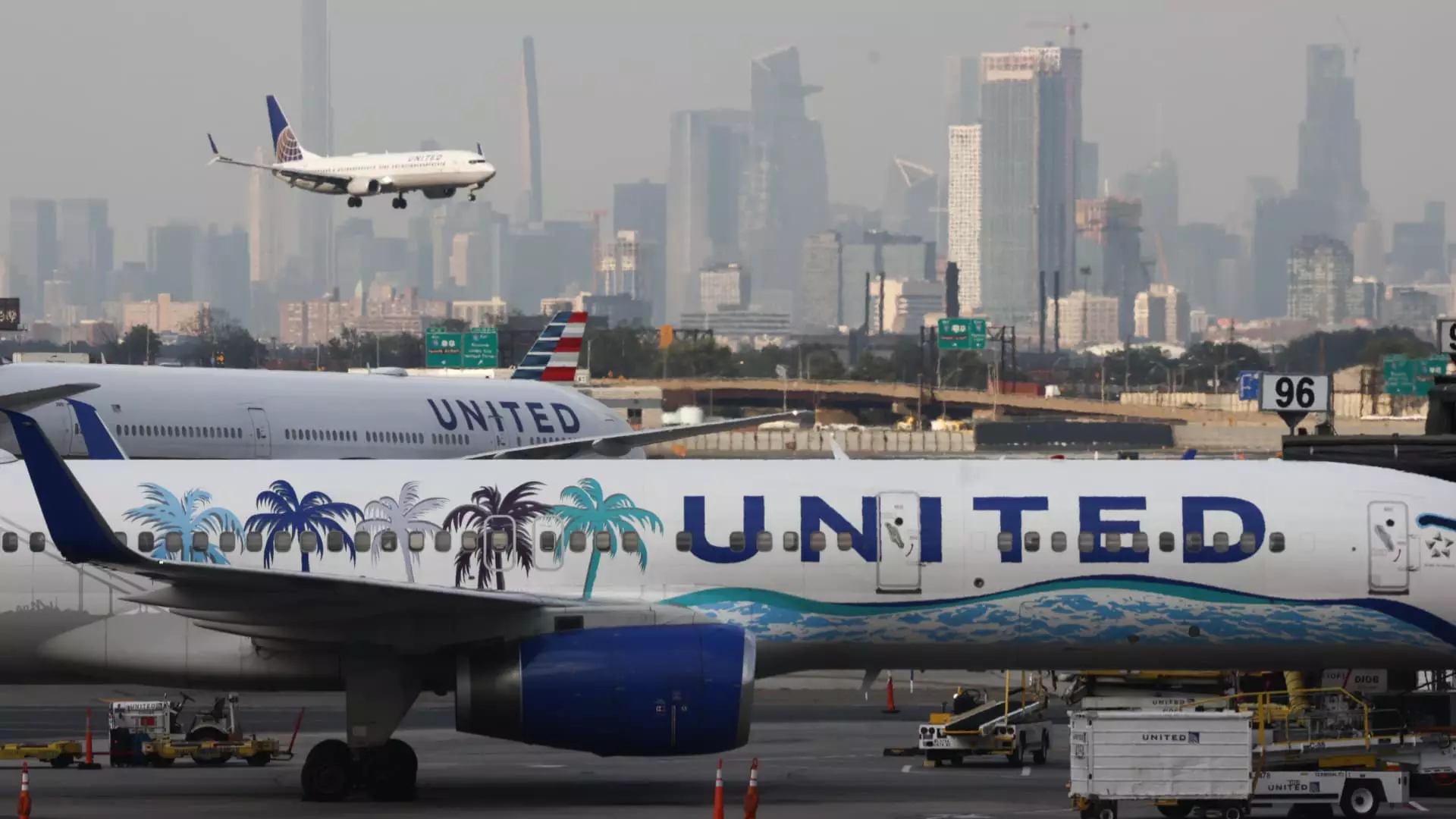In a disconcerting turn of events, U.S. airline stocks have reached disturbing lows not seen since the previous year. This sharp decline can be closely attributed to emerging economic concerns that, until recently, weren’t seen as a death knell for an industry benefiting from robust consumer spending. However, a series of economic indicators are painting a grim picture, leading to fears about the future sustainability of air travel demand. The recent drop in consumer spending, marking its first decline in nearly two years, is especially alarming for airline companies, many of whom had relied on consistent revenue streams from both leisure and business travelers.
The specter of heightened tariffs imposed by President Donald Trump on Mexico, Canada, and China has thrown a further wrench into an already precarious financial climate. Economic analysts warn that these trade barriers may result in retaliatory measures that could cause inflation and inherently raise the costs for consumers. Executives from major retailers like Best Buy and Target have vocalized fears that the increased tariffs could trickle down to consumers, leaving airlines vulnerable to the unrelenting pressure of a price-sensitive market. When people reconsider their discretionary spending amid rising costs, travel could easily slip down their priority list.
The stark reality is that domestic carriers are staring at the immediate fallout of this economic turbulence. Companies such as United Airlines, Delta Air Lines, American Airlines, and others have reported significant declines in stock value, with some dropping upwards of 8%. This quick and devastating downturn may seem like a temporary setback, but it demands the attention of policymakers and industry leaders alike, as these airlines had previously been a booming segment of the economy.
Future Flight Demand in Jeopardy
Analysts have voiced concerns that the upcoming spring travel season, typically a high-demand period for airlines, may see a dip in attendance owing to the financial concerns plaguing many Americans. Deutsche Bank’s analysis emphasizes the need for vigilance as the economy appears to be caught in an “emerging soft patch.” This reveals a collective anxiety over the financial health of consumers, who are often the lifeblood of the airline industry. If discretionary spending continues to fall, we may witness a ripple effect that hits both domestic and international travel.
The Silver Lining—Corporate Travel Remains Strong
Despite the doom and gloom for leisure travel, there remains a glimmer of hope in corporate and long-haul international travel. Executives like United Airlines CFO Mike Leskinen insist that while domestic leisure travel remains stable, business travel is showing signs of resilience. This disparity raises questions about how airlines can balance their domestic and international portfolios and adapt their strategies moving forward.
In all, as airline stocks plummet in the face of economic uncertainty, it becomes increasingly clear that the sector must brace for turbulence ahead. The ramifications of a fragile economy will undoubtedly carve out new patterns in consumer behavior, and it’s essential for airlines to pivot quickly to respond to shifting dynamics. The future of air travel hangs in a delicate balance, one that could be tipped by a myriad of economic forces.


Leave a Reply